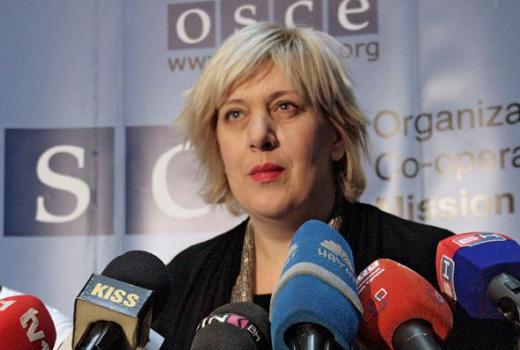Recommendations on Open Journalism

Recommendations on Open Journalism
26/05/2014
The media landscape across the OSCE region is changing faster than ever before. While technological changes mean that journalism and media are irreversibly changing, our basic human rights remain the same.
Today there is a greater plurality of actors engaged in the media landscape. New platforms and tools equip practically everyone to create and share sound, text and images. The audience is now participating in the news-making and distribution and a growing number of alternatives to traditional media actors are all contributing to the public debate. They have the reach, impact and perform the role of a public watchdog, a role that is progressively been recognized by Council of Europe and other international organizations and institutions, including the OSCE Representative on Freedom of the Media.
In order to assist the OSCE participating States to take advantage of, and to tackle the challenges posed by these changes, the OSCE Representative on Freedom of the Media launches a series of Expert Meetings on Open Journalism. In the first meeting that took place on 5 May 2014 the discussion helped to define the issues we are dealing with when we talk about Open Journalism and to highlight some of the topics that will be the subject of more detailed discussions and recommendations at a future date.
Issues covered included:
How has the job of journalists changed, methods to support new forms of journalism, the way the public debate is now also shaped by other actors, applicability of international standards on freedom of expression and freedom of the media, how to make the mix of journalism and user generated content reliable and trustworthy, respect for ethical rules in the new environment, economic transformation of the media landscape and implications for pluralism.
As a conclusion to this session the OSCE Representative on Freedom of the Media issues the following recommendations to the participating States:
• The participating States need to acknowledge that journalism has irreversibly changed and that new actors are contributing to the public debate through the media.
• The participating States need to refrain from trying to define who is a journalist. It was difficult to define who is a journalist 25 years ago; it is even more complex today.
The new media actors need to enjoy at least some of the protection and privileges that were in the past only granted to traditional media.
• There is a clear need to improve ‘media and Internet literacy’ in order for the public to have a better understanding of the new environment and to enable to critically assess where the information is coming from.
The next meeting on legal/regulatory aspects of Open Journalism is planned for September 2014.




